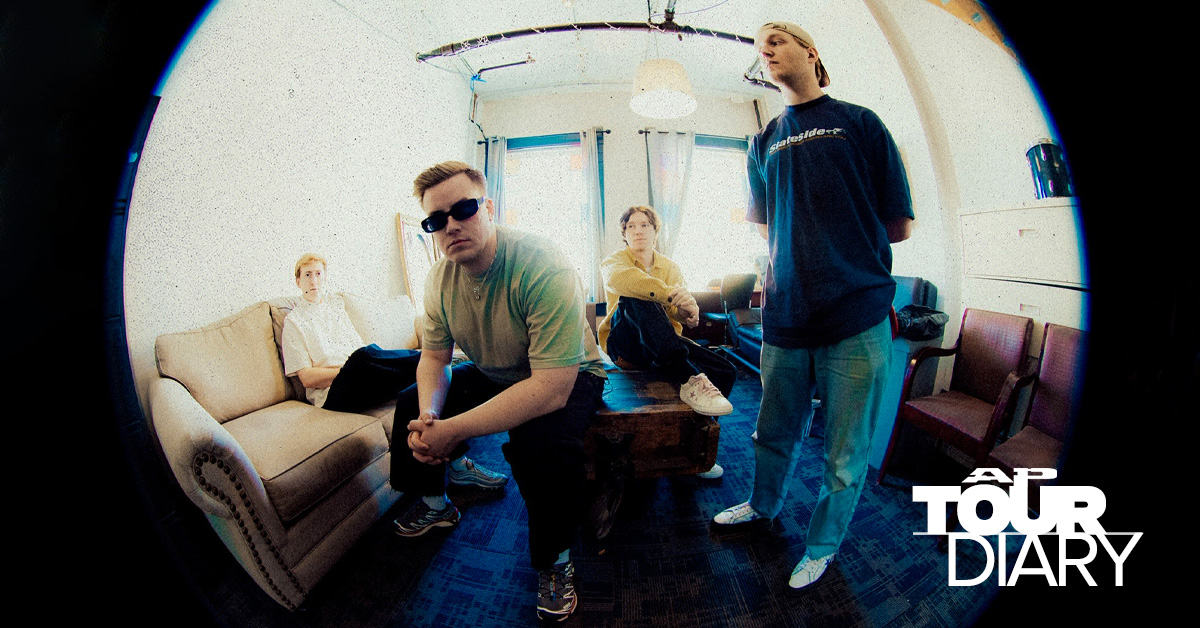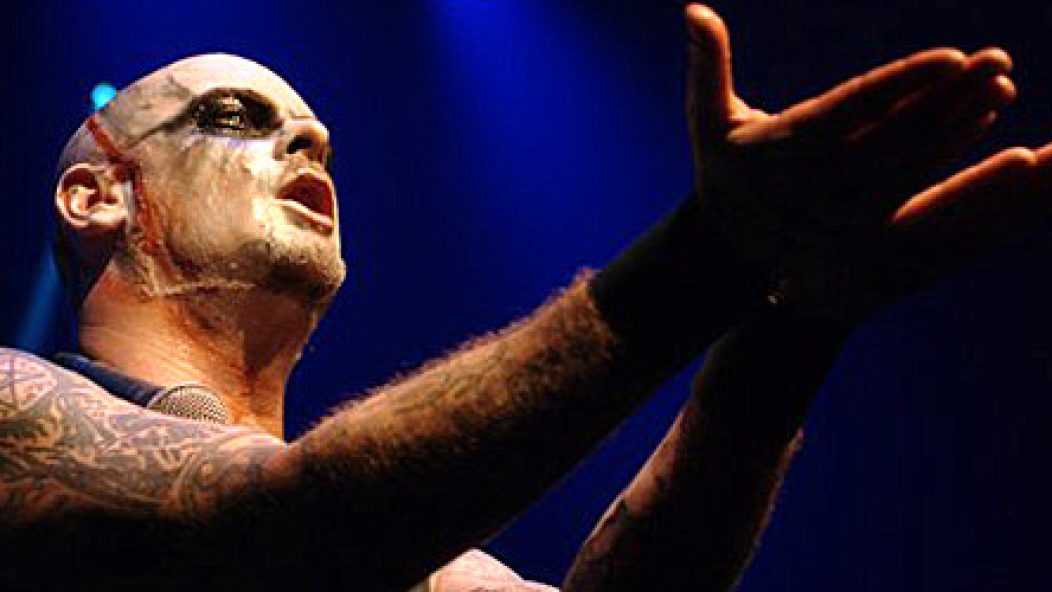
Interview: A.A. Nemtheanga (Primordial)
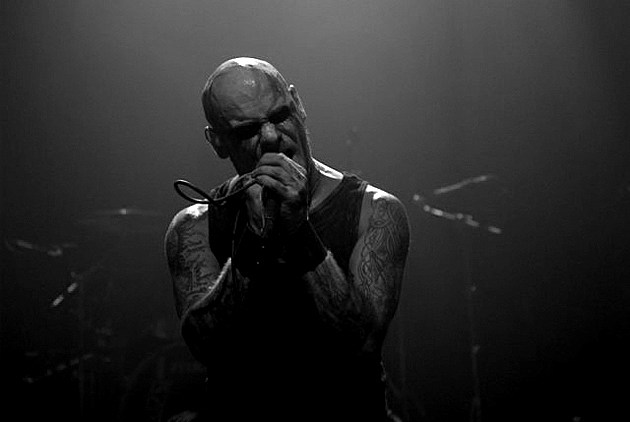
. . .
If you’re wondering why we’re featuring Primordial now when no other website is doing so, the reason is that I’m a slacker. It took me over six months to transcribe this interview, which I conducted during the press cycle for Primordial’s All Empires Fall DVD. The record label might gnash its teeth (sorry, Metal Blade), but otherwise, it really doesn’t matter. Primordial do not depend on press cycles. They are a desert island band for me. Timeless forces run through them: Bathory, black metal, Irish blood. I remember A.A. Nemtheanga’s wry brogue like it was yesterday. In ten years, I’ll still do so. Primordial speak truth, and Nemtheanga is their voice.
. . .
You’ve done Primordial for almost 20 years. If you could talk to your teenage self, what would you tell him?
Don’t change a thing (laughs). I don’t really have regrets over the last 20 years. We just did what we did. (Pauses) I was made to change the cover of A Journey’s End back in ’98. I would have said, “Don’t do that”. But I’m not one of these people who hate the first album, the first demo, and are regretful of this, that, and the other. It’s not my style. We’ve pretty much done as we pleased without compromise since day one. So I can’t have a whole lot to complain about.
You guys have stressed in your interviews that you do as you want. Yet you’re doing the standard industry press day right now. Does that bother you?
No, not at all. It’s still a chance for me to explain to people what the band is about. And if they have interesting enough questions, they’re going to get interesting answers outside of the norm. It’s a necessity, you know. At the end of the day, it’s still giving me the platform to speak about the things that I’m able to be creative about.
Why did you name the DVD after the song from your last album?
Because they do – all empires fall. Whether it’s the Romans defeating the Greeks at Carthage, or whether it’s western European Christianity falling after the birth of the Industrial Revolution to secularism, or the end of the American Century, all empires fall. That’s the pretentious answer. And the other answer is that it’s just quite snappy and heavy metal.
. . .
All Empires Fall DVD trailer
. . .
That song is about mortality, and since you guys did a documentary and DVD that looked back at your career, do you think you’re subconsciously referencing your own mortality?
Well, a lot of the new album is about that. It is about getting older, and your relationship to building spirituality, and how you view your own mortality. It’s natural for it to come to everybody who reaches a certain age, when they realize they’re not going to live forever. But there’s always been elements of that in Primordial. “Empire Falls” is about reaching back into the past and considering [if] you inherit the sins, the misdeeds, and the heroic deeds of your ancestry, despite not being connected to them in anything but name and lineage.
Speaking of your ancestry, on the band’s website, you recently said that you were questioning your idea of nationalism. Where do you stand on that now?
This is a long, complex thing. I think it’s always very good to challenge and reevaluate your own opinions, and to take stock of the things that you believed before which you took as standard, or you took as your right. Basically, in the last year to two years, I’ve witnessed the more-or-less complete collapse of the institutions in Ireland. My opinions of what being Irish means have been resolutely challenged by the absolute failings of the pillars on which the state was built. And I realized that the vision that genuine revolutionaries, rebels, and intellectuals had for Ireland before the actual revolution – or the Rising, as we call it – had not become a reality. Their vision has been betrayed by the institutions of the state.
I used to be against the state but for the people. But now I find myself against the people as well, especially in light of recent things like the [Catholic] church being exposed over two reports in the last couple years as nothing but a pedophile ring. You realize that normal people supported this by their own inaction. Whether it was the baker, the butcher, the doctor, the health service people – all these people were part of this incredible lie. You get a view, then, in Ireland of an intellectually stunted, morally corrupt backwater of Europe where the pillars of these institutions were able to abuse and use the country as they saw fit. So this is also a view of how I relate to my flag.
Would you leave the cover of your flag?
Well, we always did. Primordial is not about being Irish. We don’t sing about how brave Cúchulainn did something famous a thousand years ago, and blah, blah, blah. Whether you’re from Peru or Palestine, you can see yourself in the concepts of Primordial, whether they’re about alienation, sacrifice, redemption, or martyrdom, or how you relate to your culture and history and heritage. You could be living in rural Siberia and feel [as] disowned and disenfranchised from the arteries of the state as you could do if you were born in Jerusalem.
So we never hid behind our flag. We were ambassadors for it in a heavy metal sense, and we were proud, of course, of being Irish. But we never hid behind it. If we would have hid behind it, we would have been like a heavy metal Dropkick Murphys or something, which would have been much easier.
. . .
. . .
I’m American, and if I were to evaluate my country based on its institutions, I would have nothing to be proud of. But a country is more than its government or even the people who voted it in. It’s also its land and its history. Even though Primordial is Irish, I’ve probably learned more from you guys about being proud of my culture than from American history books.
There is a lot to be proud of in the foundations of the American state. You did have various Presidents who really did believe [in worthy ideals]. Before the creation of the banking system and before the creation of the Federal Reserve, there were an awful lot of good people who did good things. There are things to be proud of in the American Revolution. Of course there are. These things just end up getting tarnished once you move into the early to mid-20th century, because everything just generally becomes about power and economics. It’s the same relationship with every country.
With Primordial, I like to be the thorn in the side of that modern world. Part of all of this is disenfranchising people. It’s removing them from their history, rewriting history, telling them that they don’t belong. In our own small way, we like to make a stand against all of this. It would have been easier to write hokey-pokey Irish-isms, songs about drinking Guinness, and [to] watch 20,000 people at a festival go mad when we play jigs and reels. But that’s just not us. We have a different sort of calling with all of this.
Do you know of your neighbors in England – bands like Winterfylleth and Wodensthrone…
Oh yeah, sure. You’ve got Fen, as well – a pretty good band.
… yes, and they’re singing about traditional English culture.
Forefather, as well, is another good band.
Do you communicate with these bands?
Yeah, we’ve had communication with those bands over the years. I’d like to think in our own small way, we’ve paved the way for bands – I know Fen, for example, is quite influenced by Primordial – to have some small element of singing about their culture and their historical inheritance without using it as a purchase for hate. “This is where we come from; this is what we want to sing about” – it’s not a problem. I have part English ancestry, as well, so I have a very different view of these things than most other people.
I think it’s all positive. At the end of the day, some band singing about these kinds of issues, and maybe making somebody think about the history of where they’re from, or to think, “I walk by this building every single day, and I don’t know where it came from, or “Something happened of historical signficance in my local area, I want to write my thesis about it” – if these bands can help people think like that, and to remove them from the general “consume through fear” agenda, which is what has been pushed upon them by their modern world, then that’s all well and good. Let’s be honest – that’s got to be better than singing about fucking zombies and unicorns and fast cars.
. . .
“The Coffin Ships (live)” (from All Empires Fall DVD)
http://www.youtube.com/watch?v=fpI86whiTnM
. . .
Speaking of history, you toured America last year for Paganfest. America, of course, is a very young country. What did you think of it?
I loved it. I thought it was great. It was more [about] the people, the general air of positivity that we met, people who waited a long time to see us. People were very happy for us to be there. People wanted to talk to us about their Irish history and heritage, which was great. That’s what we’re here for, so to speak. To play something like “The Coffin Ships” [a song about emigration from the Great Famine, lyrics here] in countries where there were mass burial sites literally within the vicinity – especially in Toronto and New York – it was very pertinent. It was very important. We definitely felt the cultural weight and significance of what we were doing. We were all very proud to do those songs for those people who had descended from Irish who had come over in the 19th century. But every state was different. I couldn’t give you a blanket answer. Every state had a different feel to it. We’re just down-to-earth guys. We were just happy to be somewhere different every day, playing to a different set of people and bringing a small part of what we do to other people.
Do you still DJ in pubs?
Yeah, sure.
What considerations go into your selection?
Give people a good time. It’s very simple. It’s not a lecture. I DJ in a rock bar, not a metal bar. I play some metal, but it’s a rock bar. People work hard all week in their shitty fucking jobs, and they want to come and unwind and drink a beer. So earlier in the night, you’ll get some obscure songs, and you will get some obscure songs near the end if people are in there to hear them. But it’s one of the only bars you’re going to go to and hear everything from Dokken to Deströyer 666, and that’s the truth. I play lots of stuff like Thin Lizzy, Dio, Ratt – proper ’80s rock and metal. And also I’ll stick in some death metal. Just give people a good time – it’s not a lecture. If people want to be lectured to, then it’s not the place.
One thing I noticed from traveling to Europe is this notion of DJ’ing rock music. For example, in Europe there are metal bars. We don’t have those here in America.
You used to, in the ’80s.
Why do you think is?
During the early to mid-’90s, because of the whole Cobain bullshit and all the grunge shit, a lot of the joy was sucked out of rock music. Eventually, commercially it just seemed to be untenable to have a rock or metal bar. There are still lots of disenfranchised rock and metal people out there. I mean, jeezus, Rocklahoma gets 40, 50 thousand people every year. There’s people out there who want to hear it. It’s the same in Ireland. We have one rock bar in the whole country, basically, and a few nights here and there. [But] AC/DC got 85,000 people in Ireland last year. 85,000! And you don’t hear AC/DC on the radio. But you hear some cunt with an acoustic guitar who can’t fill a 200-capacity venue every hour. That’s just the way it is. Certain people became in charge of the media in the mid-’90s, people of a certain mindset, who decided on what people do and don’t like. And it’s affected everything commercially.
There [are] metal bars, sure. In Dublin, you’ll hear me playing Immolation in a bar, or Behemoth or Deicide or Amon Amarth. You can go and do that, and people still come and hear it. And you can do the same in Athens and Stockholm and Norway and wherever. I just think Europe maybe wasn’t as privy to the absolute destruction and dismantling of metal as America was in the mid-’90s, when basically all you had was Pantera and Machine Head.
What are you listening to these days?
When it comes to metal, mainly I listen to underground metal. I’m not really interested in mainstream stuff. So lately it’s been the new Drudkh album. I like the new Immolation album, the new Burzum album. I like Weapon from Canada. The Lord Vicar album is pretty good. The new Isole album is good. Griftegård… And then I like stuff like Crippled Black Phoenix and Woven Hand and lots of stuff that isn’t necessarily metal. Oh, and, of course, Ratt and Dokken (laughs).
Ratt have a new album coming out.
Yeah, yeah, there you go. And if I told you I was wearing a Dokken shirt right now, you probably wouldn’t believe me. But that’s true. (Laughs)
Dokken’s early ’80s stuff is actually pretty solid.
I love it. I’m actually wearing a Dokken t-shirt right now. I’m not joking with you.
. . .
. . .
Judging from your writing, you read a lot. What are you reading right now?
At the moment, I’m reading a book called Sacred Causes, by a guy called Michael Burleigh. It’s about everything from the IRA to Al-Qaeda. It’s a sort of history of the 20th century. At the moment, it’s about the Bolshevik Revolution, the dismantling of czarism, the birth of Communism and Lenin. I’m always reading generally quite heavy kind of stuff (laughs).
Is that what you do on tour? I know touring bands experience a lot of waiting around.
Yeah. A lot of waiting around. It’s not difficult to see why bands become alcoholics or drug addicts. You have so much time to spend doing nothing. I didn’t drink as much on the last tour of America. Every day I would go out and walk around and just try to see stuff, whatever I could.
Touring has everything. I have subscribed to the “sex, drugs, and rock ‘n’ roll” just as much as bands you would expect it of. But I have also done “I’m not going to drink so I can get up 9am to go to the museum”. (Laughs) It makes [for] a bit of variety.
You have another project called Blood Revolt. How did that come about?
A mutual appreciation, in a way. I was a fan of Axis of Advance and Revenge, and J. [Read, drums] said to me, “Axis has split. We’re thinking of making another album, but we don’t want to do the same thing. We want someone to do normal singing. Would you be into it?” The idea came about three years ago. It’s finally done and dusted now. We’re just finishing the art, and then it’s out. It’s immense. It sounds amazing. Somewhere between Axis, a little bit of Revenge, a bit of old Order from Chaos, and then some late-’80s type thrash like Dark Angel and Holy Terror, with normal kind of singing. It sounds like a strange mix, maybe, for Revenge fans, but not really, if you think about it. We both do things that are outside the boundaries.
Speaking of singing, are you trained in any way?
No, not at all. My grandmother was a bit musical. She used to sing in musicals, and thankfully I inherited something of an ear. I wouldn’t call myself particularly talented or anything, but I just about do what I try and do. But, no, I’ve never had sort of training or anything. Whatever comes out, comes out.
What hasn’t Primordial done that you want to do?
Tour South America, play in Russia and the Ukraine, go to Asia, North Africa, and Turkey. That’s about it. And Mexico.
That’s very specific.
To me, it’s about travelling, being different places, meeting people. I’m not that interested in record sales and statistics and how many people are on the Facebook page. It’s a necessary evil; I have to worry about it to some degree. But I’d rather be on a plane to Colombia to play a gig – hopefully someday before we clock out.
Have you thought about life after Primordial?
There’s another life during when I’m in Primordial, anyway (laughs). It’s OK. I’ll always be singing. I’ll always be creative and making music. I’l always be doing something to keep myself out of the 9 to 5 world.
. . .
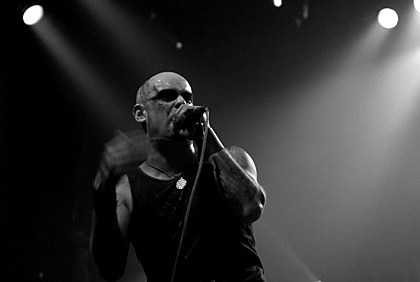
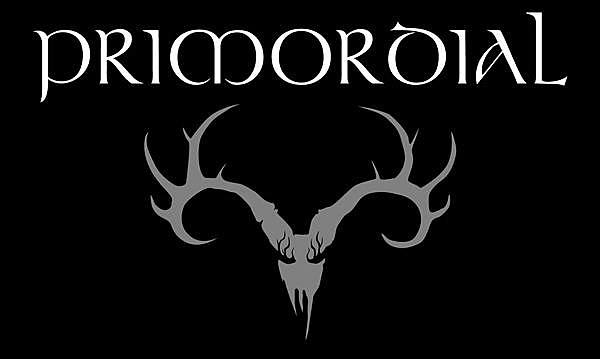








![Bad Omens announce new album CONCRETE JUNGLE [THE OST]](https://www.altpress.com/wp-content/uploads/2024/04/17/BadOmens-CROP_2024_JW_0619_Final_V1.jpg)

